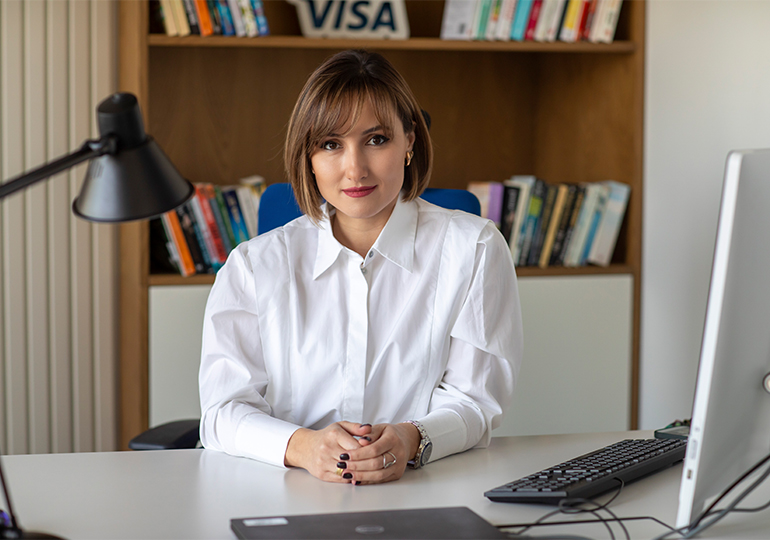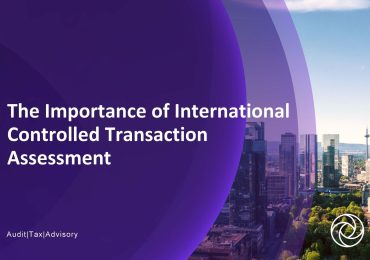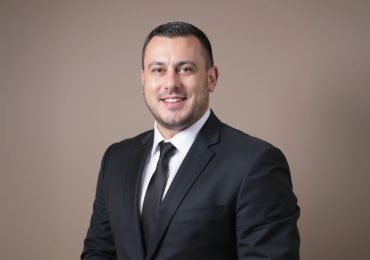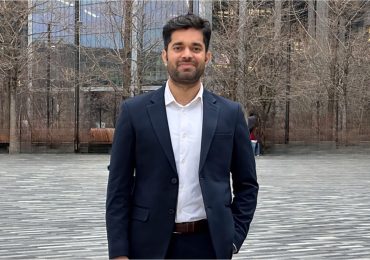The past year of the pandemic has been full of challenges. However, it has opened up a lot of new opportunities and put businesses on the path to digitalization. This trend is particularly significant for Visa – the world leader in digital payments – seeing as promoting business digitization and building relevant infrastructure is one of the key pillars of its global strategy. So far, 16 million small and medium-sized businesses have been digitized globally with support from Visa; the company plans to digitize 50 million businesses by 2023.
Successfully implemented by Visa in partnership with Forbes Georgia, the project was dedicated to the digitization of businesses, trends in the development of the cashless economy, an overview of the small and medium business ecosystem, and the sharing of knowledge and experience in the field of innovations.
The joint project laid the foundation for a communication platform that, as podcast series, facilitated for Visa to discuss successful business models and their path to success with representatives of partner banks, small and medium-sized businesses, fintech companies, and entrepreneurs.
You can learn more about Visa and Forbes Georgia joint projects, digital payment industry trends, and Visa’s plans for the future in an interview with its Caucasus Regional Manager Diana Kiguradze.
Diana, a joint project dedicated to innovations was recently successfully completed by Visa in collaboration with Forbes Georgia. What was the main goal of the project and considering the results, was the main message delivered to the representatives of the business ecosystem in Georgia?
First of all, I would like to say that the project turned out to be extremely interesting. I would like to once again thank Forbes Georgia for supporting us in this experiment. The aim of the project was to establish a platform for discussion around innovation and the startup through podcast format, which was made possible in collaboration with Visa experts, partner banks, SMEs, and startup ecosystem representatives in Georgia.
The topics discussed in the podcast aimed at raising public awareness about the challenges of Georgia’s growing and innovative startup ecosystem, as well as current trends and new business models.
In total, we recorded eight podcasts – inviting Visa experts as speakers, as well as representatives of startups and small and medium-sized enterprises, who shared their experiences with the audience. We considered this a sort of an experiment, which, if relying on the feedback received from the listeners, has proved to be successful.
I would also like to take this opportunity to thank Forbes Georgia once again for their cooperation and enthusiasm.
It should be noted that in addition to one of the main components of the project, which is to promote innovation in Georgia, the campaign also had an educational dimension. What is the role of Visa in raising public awareness and in enhancing education?
Visa actively supports various projects in the field of business ecosystem management as we believe that education is critical, both for making the right decisions and for developing innovations. Among the long list of projects, I would like to focus on a few initiatives in the field.
Globally, we offer free programs for entrepreneurs to learn the basics of personal finance management. We have a very good tool in this regard, called “Practical Business Skills”, on the implementation of which we’re working with “Enterprise Georgia”. Therefore, in the nearest future, businesses will have the opportunity to get advice from Visa and “Enterprise Georgia” which will help them grow and digitize their businesses.
Moreover, as our podcast listeners are well aware, a variety of discussion platforms are being created, that help us share success stories, share financial experiences, give digitalization tips, and generally talk about trends that are relevant and significant in the world today.
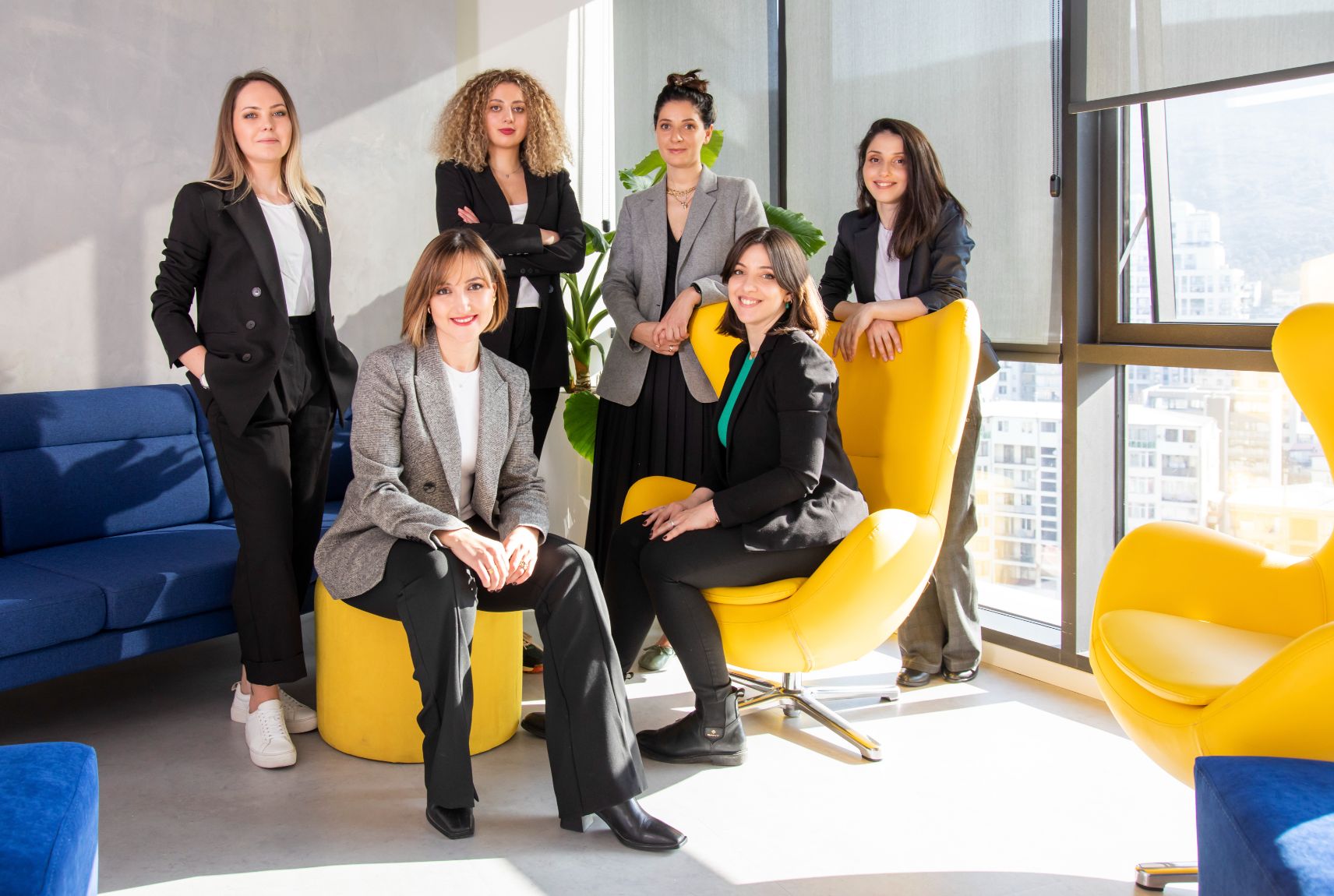
In parallel with various other projects, we also implement educational programs. Their main goal is to strengthen the involvement of women in the business ecosystem. In our region, together with partner organizations, we are launching an initiative to be proud of, called She’s Next, Empowered by Visa. So far, we have successfully completed two waves of this initiative, in which we offered women entrepreneurs various training on top topics by the best speakers, aimed at sharing the accumulated theoretical knowledge to better manage and plan businesses.
Moreover, every year we announce a rather interesting competition on a global scale for startups and fintech companies, called the Visa Everywhere Initiative. In 2021, Georgian company Payze became the winner for Central and Eastern Europe, the Middle East and Africa, which fills us with immense pride. This year, by the way, startups from the Caucasus are participating in the competition once again and we have high hopes that they will continue to be successful.
Visa is working continuously towards offering customers a number of other interesting projects in the areas of financial education, as well as digital ecosystems and the development of the cashless economy.
Let’s take a look at last year’s results and achievements to list innovative solutions that Visa has implemented both in Georgia and in the region.
I would like to reiterate the fact that the pandemic has accelerated the digitization process and increased the demand for digital services significantly. Overnight, the world took on a whole new form, giving rise to new experiences and, consequently, new needs. Lockdown has increased demand for digital services from the sides of both consumers and businesses.
Our priority as a leader in digital payments is to provide the market with as many resources and solutions as possible in response to the challenges that arise. Even today, we work with our partner banks and other types of partner organizations to implement a number of interesting solutions, including a transfers service, which allows Visa users to transfer money beyond borders quickly and securely.
Additionally, together with the Bank of Georgia and Credo Bank, we recently introduced a new technology called Visa Tap-to-Phone, which can turn a phone with an Android operating system into a terminal and receive payments – all with the device at hand. This technology supports the development of a network of terminals in order to make digital payments available where it was previously impossible to do so.
I would also like to add that we are actively developing digital issuance: if previously there was a concept of a plastic card, now it has been replaced by a digital card. Earlier this year, with the support of Visa, Apple Pay technology was introduced for the first time in Armenia. It should be noted that in 2019, in Armenia, the first mobile payments were introduced by Visa, a milestone we take a lot of pride in.
In addition to all this, we continue to offer new card products to the markets: in Georgia, for example, Visa premium business cards are already available, with which businesses can take advantage of the offers tailored to them.
We never cease to develop technologies. They are developed globally and regionally, and then implemented locally in collaboration with our partners.
Diana, it can be said that many Georgian businesses turned the pandemic into an opportunity and quickly digitized it. What role did Visa play in this regard?
The pandemic has had a negative impact on many sectors but has probably affected newly emerging start-ups the most, which is why this direction has become critically important to us. We have made efforts to support small and medium-sized enterprises, empower women economically, build new partnerships, and promote a cashless society in general, both on global and local levels.
In general, Visa plays an important role in supporting small and medium-sized enterprises, which is a continuous process. Our company is constantly investing in other companies that have the potential to develop digital payments. In addition, Visa actively assists fintech companies with the aforementioned Visa Everywhere Initiative, as well as the Visa Fast Track program, which enables fintech companies to complete the licensing process in an expedited manner.
Moreover, last year, together with the Bank of Georgia, we launched a program to digitize the business of women entrepreneurs. Under this program, 100 businesses were digitized, which is a remarkable result for the Georgian market. In addition, we have become the general sponsors of Shark Tank Georgia, which underscores our responsibility to small and medium-sized businesses.
Visa has digitized 16 million small and medium-sized businesses worldwide, and we plan to increase that number to 50 million by 2023. We will spare no effort to use all the opportunities at our disposal.
Diana, please tell us about the trends that are expected to emerge in the field of digital payments in the post-covid world?
I would not necessarily single out post-Covid trends as such, because I think the pandemic has simply accelerated processes that were already set in motion.
First of all, I would emphasize the role of e-commerce, which has the greatest growth potential, both in Georgia and in the world. Based on the statistical data, we can clearly observe how the trend of transactions in the physical environment is changing and being transformed into a trend of digital payments.
It should also be noted that the demand for digital products and digital cards is also growing. As I have already mentioned, in the nearest future, the concept of possessing a plastic card will be associated with outdated technology and will eventually become redundant.
At the same time, the rate of cross-border transfers is growing – we are talking about transactions both between individuals and companies. In the near future, the area of application of blockchain technology will definitely expand, which will significantly increase the number of new tech solutions using this very technology and we shall bear witness to numerous interesting solutions.
It is obvious that the world is being transformed significantly and we, as a leading tech company, are constantly monitoring this transformation and world development trends to create exciting solutions which will help us keep abreast of new processes and provide added value through our experienced and powerful network.
Diana, unfortunately, we can not avoid discussing tragic events in Ukraine. What kind of help did Visa provide to the Ukrainian people?
Our organization is deeply saddened by the current events in Ukraine. As you know, we have a regional hub in Ukraine, which employs a lot of people. We are very worried about their situation. To help the Ukrainian families, we implemented a project with the “Georgian Red Cross Society” in the framework of which an immediate donation of $200,000 was made to the foundation. It was transferred to Ukrainian Red Cross to provide for the humanitarian needs of the affected Ukrainians.
In addition, we urge all Visa cardholders in Georgia to visit the Georgian Red Cross Society website and make a donation. We will triple each such donation from our additional $100,000 fund. In total, Visa Georgia allocated $300 thousand for strengthening the humanitarian aid for Ukraine. We hope that all citizens of Georgia will join our initiative and together we will be able to help the Ukrainian people, those in need.
